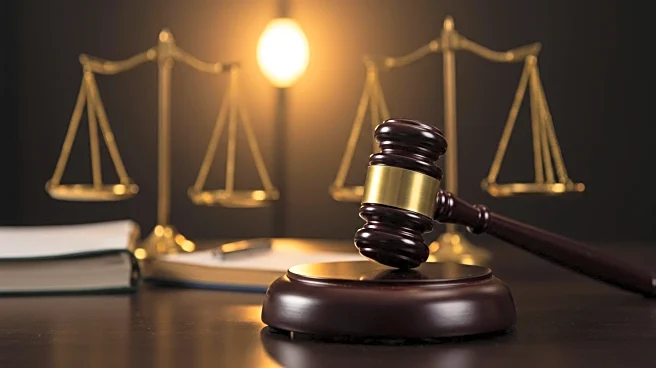What's Happening?
Emil Bove, recently confirmed as a judge on the US Court of Appeals for the Third Circuit, is legally required to recuse himself from cases involving President Trump. Bove, who was confirmed by a narrow 50-49 Senate vote, has a history of personal and professional ties to Trump, having served as his private defense attorney and as principal deputy attorney general. Federal law mandates that judges disqualify themselves from cases where their impartiality might reasonably be questioned. Bove's past actions, including his defense of Trump in criminal cases and his controversial directives at the Department of Justice, have raised concerns about his ability to remain impartial in cases involving Trump.
Why It's Important?
The requirement for Bove to recuse himself underscores the importance of judicial impartiality in the U.S. legal system. This development could impact President Trump's legal strategy, as Bove was expected to be a favorable judge for Trump-related cases. The situation highlights the broader issue of judicial appointments and the potential for conflicts of interest, which can undermine public confidence in the judiciary. The recusal requirement may also affect the outcomes of cases involving Trump, as it prevents Bove from presiding over them, potentially altering the legal landscape for the former president.
What's Next?
Parties involved in Trump-related cases are likely to file motions for Bove's recusal, citing his past affiliations with Trump. This could lead to a series of legal challenges and appeals if Bove refuses to recuse himself. The situation may prompt further scrutiny of judicial appointments and the processes by which judges are selected and confirmed. Additionally, the legal community and public may call for reforms to ensure greater transparency and impartiality in the judiciary.
Beyond the Headlines
The Bove recusal case highlights ethical considerations in judicial appointments, particularly the balance between political influence and judicial independence. It raises questions about the long-term implications of appointing judges with strong political ties and the potential erosion of trust in the judicial system. This case may serve as a catalyst for discussions on judicial ethics and the need for stricter guidelines to prevent conflicts of interest.










